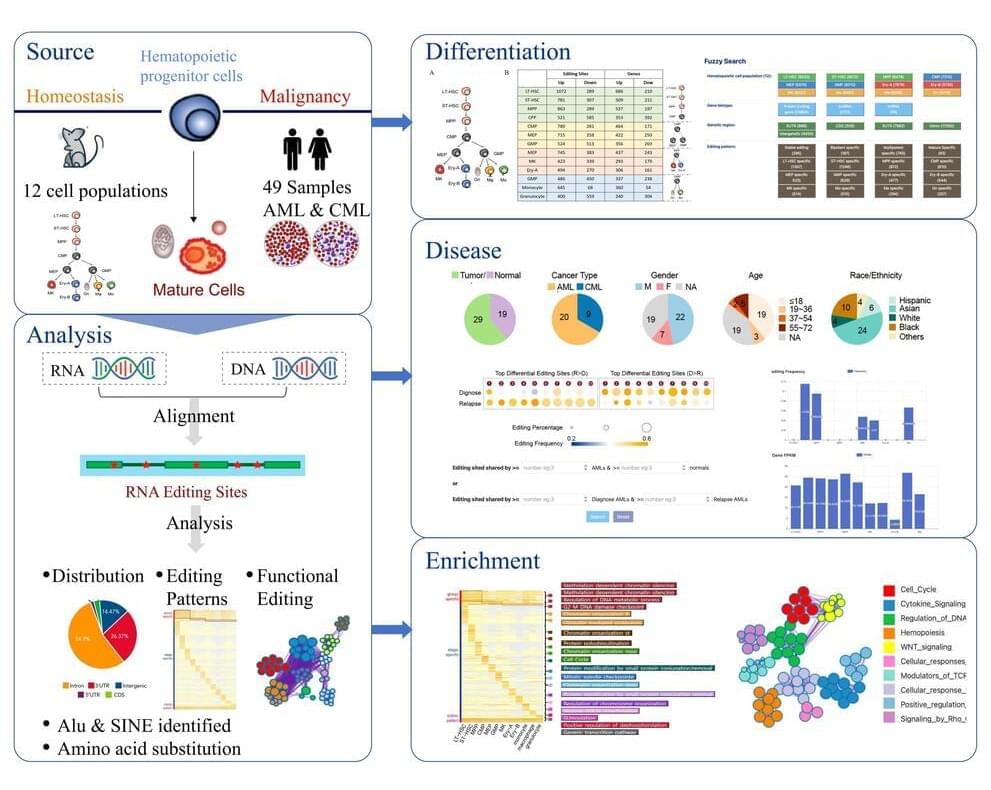The process of converting DNA to proteins through an RNA is far from straightforward. Of the several types of RNA involved in the process of protein synthesis, a few may be edited mid-way. In mammals, RNA editing mostly involves converting adenosine (A) to inosine (I) through deamination, which can result in a wide range of effects. For example, A-to-I conversion can regulate gene expression in different ways and significantly alter the final synthesized protein.
While RNA editing is an essential biological process, it is also a key underlying mechanism in some diseases, including cancer. Thus, scientists have created large-scale databases documenting RNA editing sites in various human tissues. These databases serve as useful platforms for identifying potential diagnostic or therapeutic targets from the RNA editome, which encompasses all edited RNA molecules in a given cell or tissue.
Unfortunately, there are currently no databases for RNA editing in hematopoietic cells. The hematopoietic cells are unique in that they can develop into all types of blood cells including red blood cells, white blood cells, and platelets.










Comments are closed.